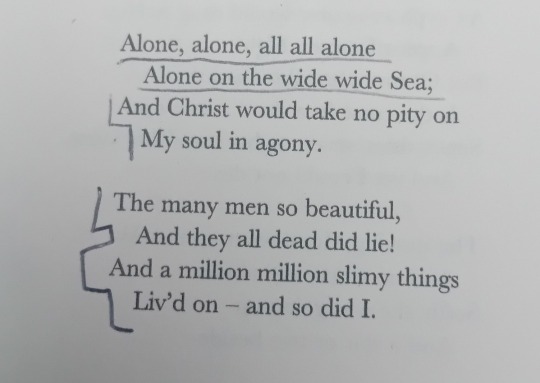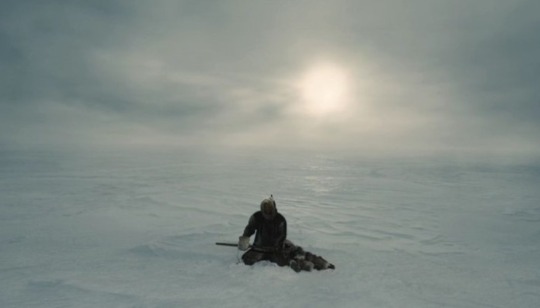#Samuel Coleridge-Taylor
Explore tagged Tumblr posts
Text
Samuel Coleridge-Taylor (1875-1912)
12 notes
·
View notes
Text



OTD in Music History: Composer and conductor Samuel Coleridge-Taylor (1875 - 1912) is born in London. The child of unwed parents in a mixed-race union (his mother was a white British woman and his father was a black immigrant from Sierra Leone), Coleridge-Taylor was named after famed poet Samuel Taylor Coleridge (1772 - 1834) and rose up to achieve tremendous artistic success in his short life despite the prejudices that were then attached to his lineage. As a boy, Coleridge-Taylor’s matriculated at the Royal College of Music, where he studied both violin and composition under noted English composer Charles Villiers Stanford (1852 - 1924). After completing his degree, he became a professional musician, and by 1896 he was already making a name for himself as a composer; he enjoyed the early support of Edward Elgar (1857 - 1934) and the influential music editor and critic August Jaeger (1860 - 1909), who confided to Elgar that he considered Coleridge-Taylor to be "a genius.” In his own time, Coleridge-Taylor was best known for composing three cantatas on the epic poem “The Song of Hiawatha” (1898) by Henry Wadsworth Longfellow (1807 - 1882). Unfortunately, this budding fame didn't bring with it financial security. Coleridge-Taylor came to deeply regret selling the copyright of “Hiawatha’s Wedding Feast” (1898) to his publisher outright for a mere £15 after the score went on to sell nearly 150,000 copies. This proved to be by far the biggest commercial success of his compositional career -- and because he failed to secure any royalties from sales of the work, Coleridge-Taylor had to vigorously pursue a conducting career in order to support himself and his family. Constant touring weakened his constitution (which was never particularly strong), and in 1912 he collapsed at a railway station and died soon afterwards. PICTURED: A photo postcard showing the young Coleridge-Taylor, which he signed and inscribed in 1902.
#classical music#opera#music history#bel canto#composer#classical composer#aria#classical studies#maestro#chest voice#Samuel Coleridge-Taylor#Royal College of Music#classical muscian#classical musicians#classical history#opera history#history of music#history#historian of music#musician#musicians#diva#prima donna#conductor
3 notes
·
View notes
Text
The Thrall in the Hall: Randall Goosby and Zhu Wang Violin and Piano Duo at Hahn Hall
Violinist Randall Goosby Though this was ostensibly Randall Goosby ’s show, the music making was a wonderfully integrated duo with pianist Zhu Wang, These two fine young musicians shared the virtuosic duties that the music in this concert demands. Both are clearly hard working and dedicated artists. Both have technical and interpretive prowess. And they clearly embody a mutual respect for each…

View On WordPress
#20th century#black composers#Chamber music#classical#Classical Music#Composers#Florence Price#folk music#Hahn Hall#Johannes Brahms#Music#New Music#Piano#Politics#Randall Goosby#Richard Strauss#Samuel Coleridge-Taylor#violin#William Grant Still#Zhu Wang
2 notes
·
View notes
Text
Jaime’s story losing his hand in A Storm of Swords is effectively Samuel Coleridge’s long narrative poem “The Rime of the Ancient Mariner.” The poem follows an old sailor telling a tale to a random stranger about his trials after impulsively killing a friendly albatross his ship had come upon when trapped in ice. Jaime’s journey follows after killing Aerys, his noted sin among Westerosi society. However, at the start of the series, Jaime had impulsively pushed a child out the window at Winterfell, a sin akin to killing the innocent seabird. Both their acts change the course of their lives.
'Twas right, said they, such birds to slay, That bring the fog and mist.
- The Rime of the Ancient Mariner
"He swore a vow to protect his king's life with his own. Then he opened that king's throat with a sword." "Seven hells, someone had to kill Aerys!" Robert said, reining his mount to a sudden halt beside an ancient barrow. "If Jaime hadn't done it, it would have been left for you or me."
-AGOT, Eddard II
The fellow crew of the ship though initially condemning of the Mariner’s act of killing the albatross, later condone his actions. His actions mark him as a cursed man while his crew’s condoning of that action end up cursing them as well. Robert and House Lannister condone Jaime’s action of killing Aerys and the murder of Rhaegar’s children by Tywin.
The Mariner’s sin results in him and his crew being cursed, and Jaime’s actions result in himself, the kings he raised up and his family being cursed. The crew dies condemned as a result while Robert is gored by a boar, Tywin is killed on the privy by his son, Cersei and Jaime’s kids are fated to die and House Lannister’s regime is doomed to fall.
Instead of the cross, the Albatross About my neck was hung.
. . .
Alone, alone, all, all alone, Alone on a wide wide sea! And never a saint took pity on My soul in agony.
. . .
But oh! more horrible than that Is the curse in a dead man's eye! Seven days, seven nights, I saw that curse, And yet I could not die.
-The Rime of the Ancient Mariner
His hand burned.
Still, still, long after they had snuffed out the torch they'd used to sear his bloody stump, days after, he could still feel the fire lancing up his arm, and his fingers twisting in the flames, the fingers he no longer had.
. . .
His hand was always between them. Urswyck had hung it about his neck on a cord, so it dangled down against his chest
-ASOS, Jaime IV
Like the Mariner, Jaime carries the hand he used to kill Aerys and push Bran out a window as an albatross around his neck. The people he remembers from when he was inducted into the Kingsguard are all dead while he lives in agony both literal in the pain from losing his hand and figurative with the turmoil and marginalization from being labeled “Kingslayer.”
The Mariner found himself in “life in death.” He is stranded on a cursed ship alone, having lost God’s grace to the point he cannot pray and seemingly hopeless. Jaime himself felt truly alone after killing Aerys. He couldn’t confide in anyone, not his fellow brothers of the Kingsguard nor even his sister-lover Cersei or his brother Tyrion. His act of kingslaying isolated him.
'O shrieve me, shrieve me, holy man!' The Hermit crossed his brow. 'Say quick,' quoth he, 'I bid thee say— What manner of man art thou?' Forthwith this frame of mine was wrenched With a woful agony, Which forced me to begin my tale; And then it left me free.
-The Rime of the Ancient Mariner
The Mariner confesses to a Hermit on his journey home, and in doing so relieves him of his guilt. Jaime ultimately feels compelled to tell his story to another like the Mariner does, and tells his story behind killing Aerys to Brienne.
Yea, slimy things did crawl with legs Upon the slimy sea.
. . .
O happy living things! no tongue Their beauty might declare: A spring of love gushed from my heart, And I blessed them unaware: Sure my kind saint took pity on me, And I blessed them unaware.
-The Rime of the Ancient Mariner
"Blue is a good color on you, my lady," Jaime observed. "It goes well with your eyes." She does have astonishing eyes.
-ASOS, Jaime IX
What allows the Mariner to gain salvation is by “blessing unaware” the creatures he originally derided as “slimy,” recognizing the beauty in them. Jaime sees the beauty and worth in the woman he originally derided as “ugly” and “stupid,” thinking she has beautiful eyes, gives her his Valyrian sword and goes in to rescue her at risk to his own life like a knight rescuing a fair maiden in a song.
#asoiaf#samuel coleridge-taylor#rime of the ancient mariner#jaime lannister#the rime of the ancient mariner#brienne
18 notes
·
View notes
Text
Stanley Halls to stage revival of Coleridge-Taylor's Dream Lovers
The first professional staging of Samuel Coleridge-Taylor’s opera Dream Lovers since its premiere in 1898 will be performed on February 14 and 15 at Stanley Halls in South Norwood. Long lost manuscript: Dream Lovers has not been performed for more than a century It will be performed by a cast of singers from the English National Opera and the Royal Opera House’s young artists programmes. The cast…

View On WordPress
#April Koyejo-Audiger#Benson Wilson#Dream Lovers#Maya Angelou#Paul Laurence-Dunbar#Samuel Coleridge-Taylor#Stanley Arts#Stanley Halls
0 notes
Text

Playing
BRITISH CLARINET QUINTETS Stephan Siegenthaler Leipziger Streichquartett
-
Sir Arthur Somervell - Clarinet Quintet in G Major
Samuel Coleridge-Taylor - Clarinet Quintet in F-sharp minor
Richard Walthew - A Short Quintet in E-flat Major
#playing#clarinet#Stephan Siegenthaler#Leipziger Streichquartett#Sir Arthur Somervell#Samuel Coleridge-Taylor#Richard Walthew#2015
0 notes
Text
Happy birthday Samuel Coleridge-Taylor
0 notes
Text



Samuel Taylor Coleridge poem The Rime of the Ancient Mariner Illustrated by Gustave Doré (French, 1832-1883)
#gustave doré#illustration#black and white#art#the rime of the ancient mariner#poem#samuel taylor coleridge#poetry#gustave dore#ship#boat#dark waters#marine art#ocean#waves#water#seascape
10K notes
·
View notes
Text

Illustration for "The Rime of the Ancient Mariner" – Gustave Doré // The Albatross – Taylor Swift
#rime of the ancient mariner#samuel taylor coleridge#gustave doré#albatross#the albatross#the albatross song#the albatross taylor swift#the tortured poets department#tortured poets department#ts ttpd#ttpd#taylor swift#ttpd taylor swift#taylor swift ttpd#ts edit#tsedit#tswiftedit#tswift edits#art#art history#lyrics#lyric art
759 notes
·
View notes
Text


The Terror (2018) // The Rime of the Ancyent Marinere (1798)
1K notes
·
View notes
Text

Illustration from Coleridge's The Rime of the Ancient Mariner by Joseph Noel Paton (1863)
#joseph noel paton#art#illustration#19th century#19th century art#vintage art#vintage illustration#vintage#scottish artist#scottish art#samuel taylor coleridge#the rime of the ancient mariner#poetry#poetry art#death#classic art
744 notes
·
View notes
Text
youtube
Samuel Coleridge-Taylor (1875-1912) - Concerto for Violin in G Minor, op. 80, Movement I: Allegro Maestoso
Njioma Chinyere Grevious, Violin 2023 Sphinx Competition, 1st Place
Sphinx Symphony Orchestra Maestro Kalena Bovell
11 notes
·
View notes
Text

"I had done a hellish thing" (illustration for The Rime of the Ancient Mariner), Gustave Doré, 1876
#art#art history#Gustave Doré#engraving#illustration#rime of the ancient mariner#Samuel Taylor Coleridge#French art#19th century art
562 notes
·
View notes
Text
Rachel Barton, Uncovering Valuable Legacy
Cedille Records CDR 90000 214 This album, largely a re-release of Barton’s groundbreaking recording of 1987 without the Violin Concerto No. 4 in D Major by CHEVALIER J.J.O. DE MEUDE-MONPAS (FL. C. 1786) but with the wonderful addition of Florence Price’s Second Violin Concerto of 1952. That alone is worth the price of this disc. Rachel Barton Rachel Barton Pine who made her debut at age 10…

View On WordPress
#Aaron Rosand#black composers#CHEVALIER DE SAINT-GEORGES#Classical Music#Composers#Daniel Hege#Encore Chamber Orchestra#Florence Price#Jonathon Heyward#JOSÉ WHITE LAFITTE#JOSEPH BOLOGNE#Music#Paul Freeman#Rachel Barton#Royal Scottish National Orchestra#Samuel Coleridge-Taylor#violin
4 notes
·
View notes
Text

163 notes
·
View notes
Text
Addiscombe artist who brought vivid colour to children's books
Bygone age: when she was 12 or 13, Rosa Petherick captured this scene of Addiscombe Station SUNDAY SUPPLEMENT: The thriving arts scene in Croydon in the first decades of the 20th Century included five sisters with connections to Cicely Mary Barker and Samuel Coleridge Taylor, as DAVID MORGAN explains Violin practice: Rosa Petherick captured her sister, and the cat The exhibition of illustrations…

View On WordPress
0 notes